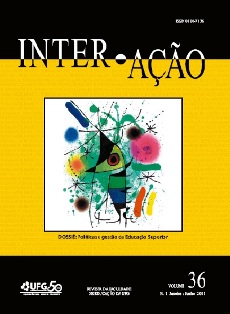HIGHER EDUCATION IN PORTUGAL : UNCERTAINTIES AND CONTRADICTIONS
DOI:
https://doi.org/10.5216/ia.v36i1.15747Keywords:
Equity, Lifelong learning, The Bologna DeclarationAbstract
Against the background of a globalized economy, higher education faces a series of problems in most countries. In Portugal, decisions on higher education are still influenced by the European Union. In this article three problems have been selected: equity, lifelong learning and the implications of the Bologna Declaration for Higher Education. From this study it can be concluded, that despite the democratization process that Portugal has been experiencing since the April 1974 Revolution, its higher education still continues to be an education for the elite; that the experience called The over 23s, whose aim was to bring new categories of people into higher education, has not had the expected results; and finally, that the implementation of the Bologna Declaration has brought new problems, namely those involving equity.Downloads
Downloads
Published
How to Cite
Issue
Section
License
Inter-Ação uses the Creative Commons Attribution 4.0 License for Open Access Journals (Open Archives Initiative - OAI) as the basis for the transfer of rights. Open access means making documents available on the Internet free of charge, so that users can read, download, copy, distribute, print, search, or link to the full text of documents, process them for indexing, use them as input data for software programs, or use them for any other lawful purpose, without financial, legal, or technical barriers.
Authors publishing in this journal agree to the following conditions:
1) Authors retain copyright and grant the journal the right of first publication, with the work simultaneously licensed under the Creative Commons Attribution License, which permits redistribution of the work with attribution and first publication in this journal.
2) Authors are permitted to enter into additional, separate agreements for non-exclusive distribution of the version of the work published in this journal (e.g., for publication in an institutional repository or as a book chapter), with attribution and first publication in this journal.
3) Authors are permitted and encouraged to publish and distribute their work online (e.g. in institutional repositories or on their home page) at any time before or during the editorial process, as this may generate productive changes as well as increase the impact and citation of the published work.















